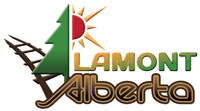Urban Hen Keeping Program
Town of Lamont Council passed Bylaw 03-25, Urban Hen Keeping Program on April 8, 2025 which is allowing up to 5 residents to apply for a license to have 2-4 laying hens for a period of 1 year.
Residents must provide the following information with their applications:
- Proof of completion of an urban hen keeping training course
- Proof of registration for a Premises Identification Number
- Signed Neighbour Consent Forms from every adjacent neighbour
- Site Sketch complete with the hen enclosure location relative to adjacent properties and residential buildings, coop and run floor areas, and associated setback distances (structures larger than 100 square feet will require a development permit)
Application for Urban Hen Pilot Program License
